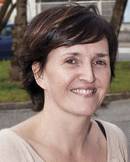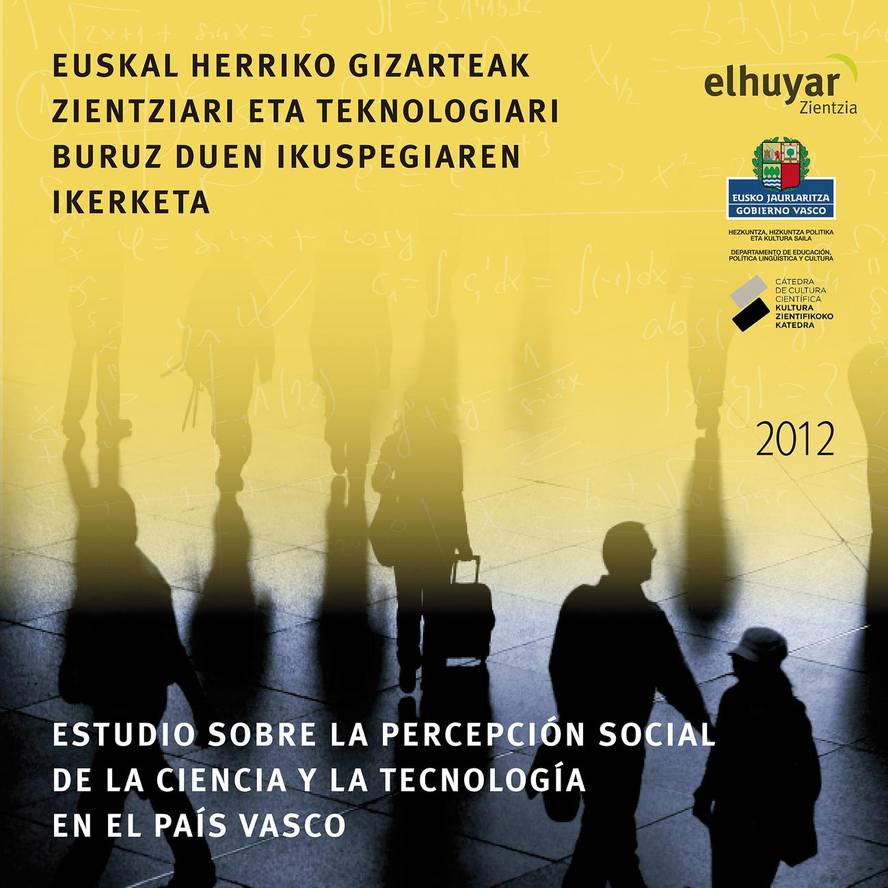Science and technology in the eyes of society. Some facts and some reflections
Interest in science and technology has increased by 11% since 2006, and citizens believe that these issues should be a priority of public spending. These are two of the conclusions of the results of "Study of the perception of Basque society on science and technology 2012". This study was carried out by the Elhuyar Foundation, in collaboration with the Department of Education, Linguistic Policy and Culture of the Basque Government and the Chair of Scientific Culture of the University of the Basque Country.
The aim of the study was to measure and diagnose Basque society's perception of science and technology. Fieldwork has been carried out throughout 2012, with two approaches: one qualitative to know closely and in depth the views on science and technology, and another quantitative that has provided accurate and statistical data. It should be noted that in 2008 we also conducted a study of this type, which has allowed us to compare the current data with the current ones and analyze the evolution of the approach.
Thus, research has shown that science and technology have become a fundamental element in Basque society, and that citizens think that the goal of investment and development of science and technology must be equivalent to the leading countries of Europe.
On the other hand, respondents mention the great influence the economic crisis has on investing in science and technology. In this sense, the 2008 study mentioned the "talent leak" as a risk, but now it is considered a reality.
According to quantitative analysis, three out of four citizens believe that science and technology provide more advantages than disadvantages. In addition, they see with good eyes the professions related to science and technology and consider that the profession of researchers is attractive. The population considers that it has a "medium" level of information on science and technology and that information on these subjects is received mainly through the internet and television, especially among the youngest (15-29 years).
Also for those of us engaged in science communication
The highlights may be of interest to anyone, but the study collects much more. Among them are four aspects that can be highlighted for those of us engaged in science communication.
First. In the qualitative aspect it is clear that in society the discourse on science and technology is manifested mainly in technology. The imminence that defines science and science does not appear in the characteristics of science and technology. A symptom of Slow science vs fast technology?
Second. The results show that society considers research necessary, and the percentage of people who consider it necessary has increased compared to the previous analysis. Society, therefore, does not question the need to put resources for research. This reminds us of an argument we have so often used in the communication of science and technology. In fact, among those of us engaged in science communication, the classic argument has been the need to warn of the importance of putting resources into research. According to the data, the objective would be achieved, or it would be a consequence of the work well done.
Third. These data show that formal education is largely a perception of science and technology. The study highlights the following data: on the one hand, when asking about the stages in which the best education in science and technology has been received, 32% in high school, 21% in primary and secondary and 18% in professional training.On the other hand, when we ask them about issues of interest, only in the segment of children under 29 years of age is mentioned science and technology. Finally, when asked which area should be investigated, only those under the age of 29 mention basic sciences.
In view of data, science and technology disappear while abandoning formal education among very young people. What about adults? Is there an interruption in science and technology literacy?
Fourth. Society shows an average degree of interest in science. When asked for lack of interest, the main reasons are "I do not understand", "I do not arouse my interest" and "I do not think about the issue". It is clear that society cannot be interested in all issues, but, instead of being science and technology, would we receive those answers if the issues were other? And, moreover, is it consistent that the answers to the lack of interest and interest we consider necessary are those?
Why communicate science and technology? And what to communicate in science and technology?
Not the need to invest resources in science and technology to create a mature society that perceives science and technology as part of culture. That is, in our opinion, the challenge of those of us who are engaged in outreach or communication broadly.
We see our steps in integrating science and technology into the set of knowledge, behaviors and beliefs that define our society. Science and technology not only to relate to progress, but to realize the rhythms of science and technology, to expand the rules behind them, etc.
It is clear that the people who work in communication have not fully achieved that closeness to society. We have not managed to ignite the desire. Surely we will have to explore new ways in communication (or disclosure) and we may have to learn from other "disciplines" to structure our discourse.
Art, for example, has managed to be perceived as a feature of our current society and has a clear presence in our daily lives (landscape, leisure, spaces of debate...). Maybe we have something learned from the communicative discourse that the arts use and we can assimilate some of the keys that are used in them (emotions, person, creativity). What we have to do and the road is exciting.








